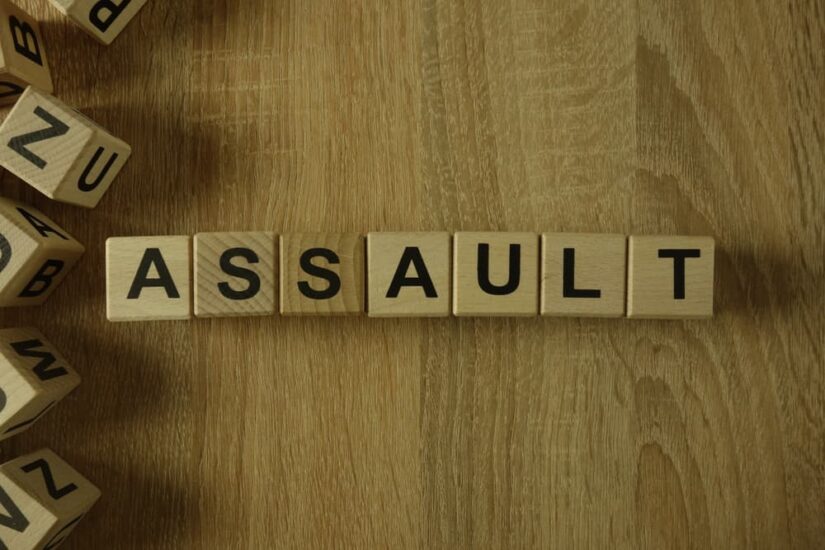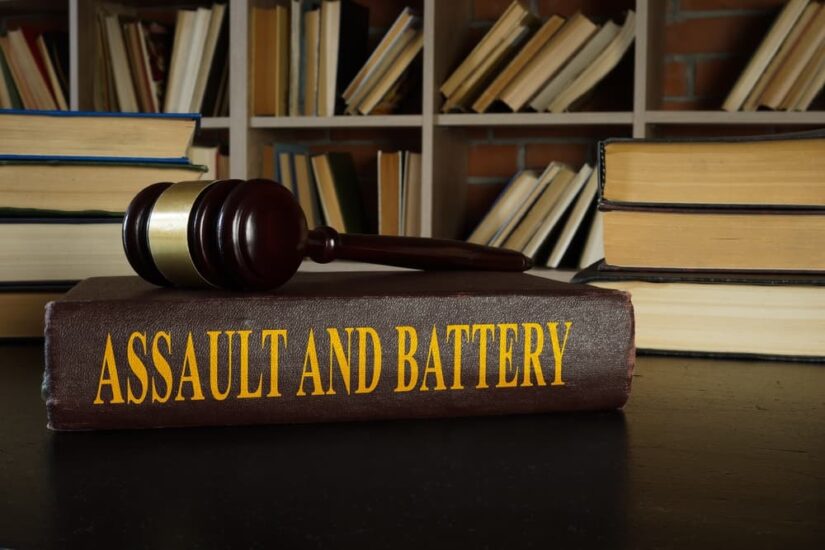Can I Claim Self-Defense in a Miami Assault Case?

If you face assault charges in Miami, you could receive significant fines, a permanent criminal record, and jail time. A conviction damages your reputation and limits future opportunities. However, you may have a valid self-defense claim if you acted to protect yourself or others from imminent harm. Florida law permits individuals to use force when they reasonably believe they face danger.

Proving self-defense requires a strong legal strategy. A Miami criminal defense lawyer builds your case by gathering evidence to confirm you faced an imminent threat, used appropriate force, and did not provoke the confrontation.
Can Prosecutors Charge You With Assault if Someone Else Hit You First?
Yes. The fact that someone else struck the first blow does not give you immunity from an assault charge. If a prosecutor or a court determines your response was excessive or retaliatory, you can still face arrest and prosecution.
Consider these factors:
- Proportional Force: While you have a right to defend yourself, the force you use must be reasonable and proportional to the threat. Using a level of force greater than what was necessary may lead a court to view you as the aggressor.
- Your Intent: Prosecutors analyze your intent. If evidence suggests your actions were retaliatory or premeditated rather than purely defensive, they may charge you with assault.
- Witnesses and Evidence: Eyewitness testimony, surveillance video, and physical evidence provide crucial context. If the evidence shows you instigated or escalated the conflict, you may face charges regardless of who threw the first punch.
When Can You Use Deadly Force in Self-Defense in Florida?
Florida’s “Stand Your Ground” law, found in Chapter 776 of the Florida Statutes, governs the use of force. It allows the use of deadly force when specific conditions are met.
You may use deadly force if you reasonably believe it is necessary to prevent your own imminent death or great bodily harm or to prevent the imminent commission of a forcible felony. A forcible felony includes crimes like murder, robbery, burglary, kidnapping, and aggravated assault.
Key principles of Florida’s self-defense law include:
- No Duty to Retreat: If you are in a place you have a legal right to be, you have no duty to retreat before using deadly force. You may stand your ground and defend yourself.
- The Castle Doctrine and Your Property: The law provides special protection when you are on your own property, in your home, or in your vehicle. This is often called the Castle Doctrine. The law presumes you have a reasonable fear of imminent death or great bodily harm if someone has unlawfully and forcefully entered, or is in the process of entering, your dwelling, residence, or occupied vehicle. This presumption strengthens your justification for using defensive force, including deadly force.
- Reasonable Belief: In any self-defense scenario, your belief that deadly force is necessary must be reasonable. A court will evaluate whether a person in the same circumstances, with the same knowledge, would have acted similarly.
If you use deadly force, your Miami criminal defense attorney investigates the incident, gathers evidence, and builds a case to demonstrate that you met the legal requirements for justifiable use of force under Florida law.
In Florida, Can You Shoot Someone on Your Property
In Florida, the Stand Your Ground law allows you to shoot someone on your property when facing an imminent threat. However, using deadly force illegally can lead to serious criminal charges, including prison time.
Here are five reasons when you may be justified in using deadly force:
Imminent Threat
If you have a reasonable belief that someone poses an imminent threat of death or great bodily harm to you or others on your property, you may be justified in using deadly force. The danger must be immediate and unavoidable, leaving you with no option but to defend yourself.
Forcible Felony
Florida’s stand your ground law allows individuals to use deadly force in self-defense when facing a forcible felony. These felonies include, but are not limited to, murder, sexual battery, robbery, burglary, and aggravated assault.
If faced with a forcible felony, you are within your rights to protect yourself and others by using lethal means. For example, if someone breaks into your home and threatens your family at gunpoint, the Florida law may justify your response with deadly force.
Unlawful Entry
If an individual unlawfully enters your home or property, Florida law recognizes the concept of the Castle Doctrine. Under this doctrine, you are not required to retreat and may use deadly force to defend your home from intruders who unlawfully enter or attempt to enter.
Protection of Others
In Florida, you may use lethal force to protect others on your property from an imminent threat of death or bodily harm. Whether it is a family member, a guest, or another individual, you have the right to defend their lives using deadly force if necessary.
Reasonable Fear
Ultimately, Florida law allows the use of deadly force when you have a reasonable fear of imminent harm. This fear must be based on objective factors that would lead a reasonable person to believe that they are in danger of death or serious injury. The fear must be genuine and not based on speculation or conjecture.
If Someone Assaults You, Can You Fight Back
In the heat of the moment during an assault, your instinct might be to fight back to defend yourself. The law in Miami allows for the defense in certain situations.

When facing an assault, you should consider the concept of proportionality, meaning that your response must be proportionate to the threat. For instance, if someone pushes you, responding with lethal force would not be considered self-defense.
The Florida law expects you to use reasonable force to protect yourself from harm. You can face criminal charges if you exceed this limit and respond with excessive force. Moreover, the burden of proof lies on you to demonstrate that your actions were taken in self-defense.
You must show that you reasonably believed you were in imminent danger and that your response was proportionate to the threat you faced.
You should also consider whether you have exhausted all other options before resorting to physical retaliation. Attempting to de-escalate the situation or seeking help can protect your legal rights.
A criminal defense attorney can help prove you acted in self-defense, gather witness statements, review surveillance footage, and challenge claims that you were the aggressor. They can also work to reduce or dismiss the charges.
How to Get Assault Charges Dismissed
Getting assault charges dismissed can protect your job prospects, freedom, and avoid a criminal record. Although it is possible to get a dismissal, it requires strong legal arguments, strong evidence, and skilled negotiations.
Here are the key steps involved in getting an assault charge dismissal:
Legal Consultation
You should speak with a criminal defense lawyer when facing assault charges. A knowledgeable criminal defense attorney will assess your case, review the evidence against you, and develop a strategic defense plan.
A criminal defense lawyer will guide you through the legal process, explain your rights, and help you understand the potential outcomes of your case.
Investigation and Evidence Gathering
A criminal defense attorney will conduct a thorough investigation into the circumstances surrounding the alleged assault. Evidence is the foundation of all legal cases, including defense for an assault charge.
They will use the following sources of evidence to prove your case:
- Witness Testimony: A criminal defense lawyer may call upon witnesses who can provide firsthand accounts of the events leading up to the alleged assault. Witness testimony can help establish your version of the events and highlight discrepancies in the prosecution’s case.
- Surveillance Footage: Surveillance cameras near the incident can capture valuable footage that may support your defense. A criminal defense attorney can use surveillance footage to corroborate your version of events or challenge the prosecution’s narrative.
- Physical Evidence: Physical evidence, such as images of the injuries, damage to property, or any weapons involved in the incident, can support your case. A criminal defense lawyer will carefully analyze this evidence to build a compelling case on your behalf.
- Expert Testimony: A criminal defense attorney may engage expert witnesses to provide specialized knowledge or opinions on specific aspects of the case. Expert testimony can provide informed analysis that can dismantle the prosecution’s arguments.
- Character Witnesses: Character witnesses can testify to your reputation for peaceable conduct and non-violence. Their testimony can help establish your good character and credibility in the eyes of the court.
A criminal defense lawyer can rely on the strength of the evidence to negotiate plea bargains, push for a lenient sentence, or dismiss charges.
Negotiation and Plea Bargaining
A criminal defense lawyer can negotiate a favorable plea deal with the prosecution. The process can involve reducing the charges against you, obtaining a more lenient sentence, or dismissing the charges.
Through skillful negotiation and strategic advocacy, a criminal defense lawyer can work towards a resolution that minimizes the impact of the assault charges on your life.
Pre-Trial Motions
A criminal defense attorney can file pre-trial motions to challenge the admissibility of specific evidence. They can also seek the dismissal of the charges based on legal grounds.
For example, your attorney may argue that the evidence against you was obtained through an unlawful search and seizure or that the prosecution lacks sufficient evidence to proceed with the case.
A criminal defense attorney can use different strategies to have the assault charges dismissed before trial.
Court Representation
If your case proceeds to trial, you should have a skilled criminal defense attorney to represent you in court. They will present a compelling defense, cross-examine witnesses, and challenge the prosecution’s evidence to weaken their case.
A criminal defense attorney will use different strategies, including advocating for your innocence and highlighting inconsistencies in the prosecution’s arguments. They will fight for a favorable verdict and work towards having the assault charges dismissed.
Self-defense FAQs
What is the difference between assault and battery in Florida?
In Florida, assault is an intentional, unlawful threat by word or act to do violence to another person, combined with an apparent ability to do so, which creates a well-founded fear in the other person that such violence is imminent.
Battery, on the other hand, is when a person actually and intentionally touches or strikes another person against their will. Simply put, an assault is the threat, and a battery is the physical contact.
What is the first thing I should do after using force in self-defense?
Immediately call 911 to report the incident and request medical assistance if anyone is injured.
When law enforcement arrives, state clearly that you were afraid for your life and that you acted in self-defense. Then, invoke your right to remain silent and state that you will not answer any further questions until you have spoken with an attorney. Do not elaborate on the details of the event with the police.
Can words justify the right to self-defense?
Yes. If someone verbally threatened you, used fighting words, or otherwise provoked a physical confrontation, a prosecutor can argue they were the initial aggressor. This can invalidate a self-defense claim. Self-defense may protect you when you respond to an unprovoked attack.
What if I had a chance to retreat safely but chose to stand my ground?
Florida’s Stand Your Ground law explicitly states that you do not have a duty to retreat if you are in a place where you have a right to be. Therefore, if you face an imminent threat of death or great bodily harm in such a location, the law does not require you to attempt an escape before using defensive force.
Don’t Face Assault Charges Alone
You may face hurdles when proving assault charges. Prosecutors may argue that you were the aggressor or that your actions were aggressive. They may also say you could have safely avoided conflict without using force.
Without strong legal representation, you may struggle to gather convincing evidence or challenge the prosecutor’s narrative. A Miami criminal defense lawyer can investigate your case, uncover key facts, and present a compelling argument that supports your right to protect yourself.
Contact a criminal defense attorney for legal support when faced with assault charges.
